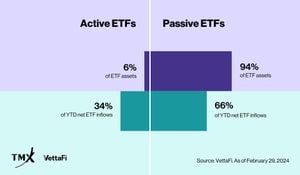Poland is bracing for its presidential election scheduled for May 18, 2024, amid swirling public opinion, shifting political alliances, and the contentious figures of leading candidates. The election is shaping to be pivotal, especially with the backdrop of President Andrzej Duda's recent meeting with former U.S. President Donald Trump, which has drawn criticism from both sides of the Polish political spectrum.
President Duda met Trump on the sidelines of the Conservative Political Action Conference (CPAC) near Washington, D.C. The two leaders discussed U.S. military presence in Poland and efforts to end hostilities in Ukraine. According to Duda, Trump reiterated the importance of the U.S.-Poland alliance, stating there was no fear of reduced U.S. forces on Polish soil. "Backstage at CPAC, President Trump met with President Andrzej Duda of Poland and reaffirmed our close alliance," the White House noted on X, adding, “President Trump also praised President Duda for Poland’s commitment to increase their defence spending.”
Despite this, the ruling coalition expressed dissatisfaction with the brief meeting, considering it unprofessional. Marcin Bosacki, a Civic Platform MP, stated, "The Polish president did not present Poland’s position, either at the CPAC conference or during a joint press briefing with Trump." Such sentiments were echoed by others, including Prime Minister Donald Tusk, who labeled the situation serious, especially considering the current geopolitical climate.
Scrutiny of President Duda's role is intensifying as the May elections approach, particularly since he cannot run again due to term limits. Duda's leadership and connections with Trump might not resonate as strongly as they once did, especially with the emergence of potential challenger Rafał Trzaskowski, the current mayor of Warsaw and Civic Platform's presidential candidate, who is leading the polls against PiS's Karol Nawrocki.
Shifting focus, another candidate has been making waves with populist proposals. Krzysztof Braun, who has sparked controversy with his extreme views, announced his candidacy noting priorities like enhancing national security, tax cuts, and educational reform. During a recent speech, Braun declared, "The government has the right and duty to take from the people in taxes only as much as is needed for national defense and security." His rhetoric also demonstrated strong nationalist sentiments, opposing any form of financial support for non-Polish citizens, including Ukrainian refugees, which he labeled "not normal for Poles to be maintaining another nation." Braun's platform is marked by his criticism of what he perceives as monopolies and bureaucracy within the pharmaceutical and education sectors, promising to dismantle existing regulatory bodies.
The political atmosphere is charged with rising tensions surrounding public opinion on evolution and scientific knowledge—a reflective indicator of cultural attitudes. Notably, surveys highlight troubling statistics showing nearly 40% of Poles reject the concept of evolution. The Eurobarometer report indicates Poland ranks among the least scientifically literate countries within the EU, with over 36% unable to answer even simple scientific questions correctly.
Between economic uncertainties and changing voter perceptions, candidates are vying to resonate with the electorate on pressing issues like climate change and national identity. Polling suggests the populace's views diverge significantly from broader EU sentiments, with 52% attributing climate change to natural cycles rather than human activity—this perspective is not only outdated but also paints Polish politics on the fringes of EU consensus.
The socio-political fabric leading up to the elections appears increasingly divided. The Civic Platform is aiming for gains after previously being sidelined during Duda's presidency, positioning their agenda toward potential revitalization of pro-European sentiments juxtaposed with advancements pushed by significantly nationalistic parties. The dynamic is witnessed as Tusk's coalition seeks to leverage community concerns against the ruling faction’s trustworthiness.
Braun, who has made headlines for statements perceived as antisemitic and hostile to the LGBTQ+ community, showcases how extreme political positions are gaining traction within Poland's current electoral climate. He has previously suggested shifting Poland toward a presidential system akin to the United States, hinting at greater executive authority for the head of state.
While these varying political philosophies convene, it remains to be seen how they will translate at the polls. The Polish voter base has adequate reasons to feel uncertain, grappling with identity politics and international relations which have far-reaching impacts on several fronts. The stakes are amplified as Poland stands at the crossroads of maintaining its national identity against perceived external pressures.
With the election set for May 18 and potential runoff on June 1, polity-watchers are bracing for a heated battle. Candidates are aware they must address the electorate effectively, all the more so as current governance faces scrutiny over public policies and decisions made by the administration.
Poland, with its unique historical and cultural fabric, is increasingly reflective of broader trends observed throughout Europe, where populist waves are shaping up just as public sentiments shift. The outcome of this election could signal significant changes for the country's future, depending on which parties gain the public's favor and how they navigate the political terrain.



